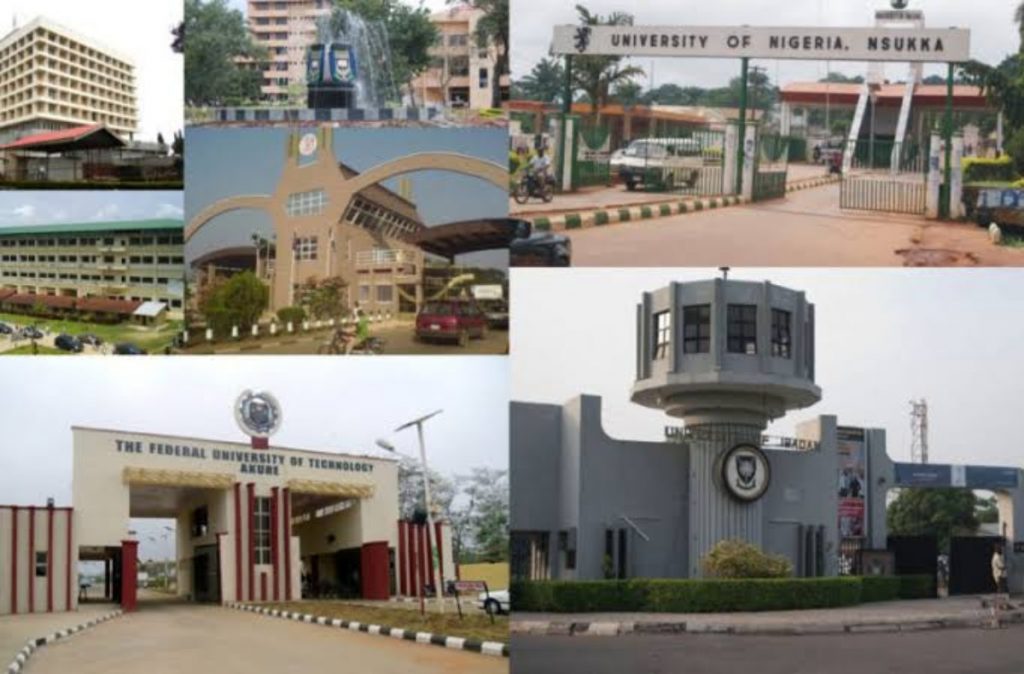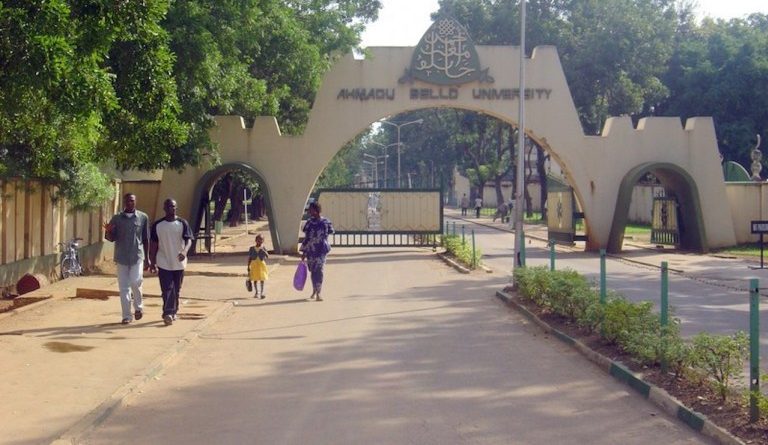That our universities may thrive
By Ayorinde Ogunruku
Universities in Nigeria, at inception, were known to have been highly competitive and impactful in the actualization of their mandates of knowledge generation through research, knowledge impartation through teaching and learning, and knowledge application through community service.
With the establishment of the University College, Ibadan in 1948 as a campus of the University of London, a sure foundation was laid for a highly competitive university system in Nigeria. Other universities that were established followed the solid foundation of the traditional British university model, largely in structure and systemic operations.

As the proceeds of the Law of Parliament or military decrees, there was an adherence to the age-long principles of a university system expected to be committed to excellence in the delivery of mandates. They were allowed a modicum of autonomy and freedom which facilitated the carriage of their objectives and competitiveness.
Over the years, with succeeding environmental influences, the Nigerian university system began to dissipate in function, operation, and impact. The environmental influences of the political landscape, ethnoreligious inclinations, loss of concrete societal values and virtues, economic downturn, despite the opulence that petro-naira brought upon the nation, and issues of elite competition for relevance or dominance in national affairs took their tolls on a system that ought to be the fulcrum of national development.
The system itself became affected by the confusion in the orientation that it became confronted with, courtesy of the multifarious experiences of those that ran it. The British model that was bequeathed to the nation following its colonial history was first influenced and moderated by the American university system that was largely developed to answer their own developmental challenges.
This came with the land grant model of their emerging states. The German model of emphasizing the post-graduate work as a foundation for national development also came to impact upon the orientation of the Nigerian university system.
Thus, while the British model gave the structure that largely formed the basis for the law that established the system in Nigeria, operations were largely influenced by the American model that emphasizes a semester system of academic delivery and the course unit system of grading and assessing the students.
ALSO READ: Why universities must reopen for on-campus delivery of teaching and learning
Of course, the postgraduate school system also began to take root. Indeed, taking the best from other climes are excellent propositions for better mandate delivery. However, in our clime, this has been sources of confusion since such propositions were not carried through and conflicted with the structure and experience of the players.
Why is there concern about the state of our university system today? This is because there is a wide belief that universities in Nigeria are largely bereft of impacting society positively. Rather than be bastions of innovation for national and societal development, they are theatres of war and enclaves of manifestation of selfish myopic interests.
It became a wonder that the University system, one was opportune to join in January 1973 as a student, and in 1982 as a staff member, that showed great potential for a burgeoning impact on society and relevance have degraded to irrelevance. It is today known that hardly are government policies influenced by well thought out and deeply researched inputs from academia.
Up until about 1985, government foreign policies were baked from the intellectual outcrops from Ahmadu Bello University, Zaria, and the then University of Ife (now Obafemi Awolowo University) Institutes of Administration.
Medical research in Ibadan was of competitive quality as those from Oxbridge and Harvard. Agricultural development in the nation was a proceed of the research works in Ibadan, Zaria, Ife, and Nsukka. The human capacity being churned out from Lagos, Ibadan, Ife, Zaria, Nsukka, and later Benin were of the best quality.
The impact of these citadels of learning must have no doubt contributed to the yearnings for multiplication that led to the establishment of the seven universities in Calabar, Jos, Kano, Ilorin, Maiduguri, Port Harcourt, and Sokoto, in the mid-1970s and ultimately the universities of Technology and Agriculture in the 1980s.
Since then, the same fervour had created the establishment of many more universities in Nigeria today. Going by the exponential growth in number to today’s 174 universities, public-federal, public-state, faith-based private, and others, it is expected that national developmental outlook should also reflect an exponential positive impact.
This largely remains to be seen. Rather from our universities emerge news of brigandage arising from pecuniary parochial interests, students devaluation arising from decrepit infrastructure and value disorientation, failure in allowing the dominance of the rule of law in management, the challenge of quality of service delivery and relevance of the products, wanton disorientation of the ideals of university culture, unbridled unionism that takes on the jugular of the system and aggregation of the poor values bedeviling the large Nigerian society.
The concern here is whether or not these issues are being addressed. We have a situation in the Nigerian university system today that calls for urgent attention. Since, as it is often said, the success or failure of an institution rises and falls on leadership, it is important to interrogate the issue of leadership of the institutions.
The leadership of universities in Nigeria today goes beyond the Vice-Chancellor who by law is the chief executive of the university. The present crops of Vice-Chancellors are subject largely to dictates by some ministerial and civil servant directors or individuals of lower ranks who delight in dictating and manipulating the direction public universities should go.
Vice-Chancellors are invited to Abuja at a go via text messages from different competing ministerial or department agencies (MDAs) – Education, Health, Federal Character Commission, Office of the Accountant General of the Federation, Office of the Auditor General of the Federation, etc. This is apart from the ignoble roles of the parliament under the guise of oversight functions.
While not being oblivious of the essence of accountability in the exercise of their, should universities be locked against the initiative that allows them to function without being breathed through by the MDAS and the parliament?
Why should a university take directive from the Senate/ House of Representatives Committee on Education OR Office of the Secretary to Government of the Federation or that of the Head of Service of the Federation to recruit staff?
This brings to the fore the unfortunate situation in which many of the universities established recently were subjected to the manipulative directives of the Federal Ministry of Education in staff recruitment to the extent that while there was inadequate academic staff, they were inundated with a retinue of administrative officers.
Some of the universities had about 200 administrative officers recruited in one fell swoop and less than a hundred academics. This is in a system that should have a ratio of about one administrative staff to five academic staff.
Quite unfortunately is the fact that the universities are themselves internally riddled by the pecuniary interests of the operators. There are constant immolative conflicts for Vice Chancellorship and filling of vacant positions of Principal Officers and Deans/Heads of Department, the winner takes all syndrome that turns some Vice-Chancellors into emperors.
Sending them to be far from their constituencies, the unbridled interest of host communities in taking administrative control of the institutions on their lands using natives to foment troubles, the challenge of accountability in management, challenge of quality and relevance of research and lack of effective and positive use of the committee system.
All these dwarf the universities’ capacity to impact positively on society and be competitive with their homologue in other climes. These matters are further not helped by the poor composition of the governing councils that should give policy directions for good governance.
How can one explain having people with a poor understanding of the university system appointed as Chairman/Pro-Chancellor or member of the Council? Or what explanations are there for appointing a serving Professor in a university to serve as a Pro-Chancellor in another, or yet a serving Senior Lecturer or other staff to serve on the council of another perhaps bigger institutions?
There was once a personality that could hardly communicate in English appointed into the Council of a Federal University. There is the recent one of a member of staff in the private business of a Pro-Chancellor serving in the same Council as his principal.
Is our nation too large to do thorough background checks of appointees? Rather than concentrate on the essence of service, exercising due diligence in the manner of appointment of Council members, the civil servants are more interested in controlling the universities as they do the Polytechnics and Colleges of Education.
Many of those appointed to represent the Federal Ministry of Education in Council rather than ensuring adherence to university tenets are fond of foisting the civil service rules on the universities in a manner to justify their ego of exercising supremacy over the universities.
Where do we go from here? It is my belief that universities are the easiest places to govern where all the stakeholders allow the laws to prevail and not manipulated to massage egos or further personal nests. Vice-Chancellors must see themselves as primus inter pares and not Lords of the manor.
Officers must avert themselves to the laws, performing according to its dictates. Government authorities should desist from over-burdening controls. Appointment to offices should be merit-based rather than the prevailing ‘turn by turn’ or satisfaction of ethnic, parochial, or pecuniary interests. Achieving excellence requires a foundation of excellence.
One must in closing appreciate the recent efforts of government through the Tertiary Education Trust Fund (TeTFund) for improving the infrastructural landscape of the public universities in Nigeria.
In doing this, they must deny themselves the excessive control that breathes down the trachea of the universities and allow innovative development of environmental uniqueness. It is high time they also allow the Private Universities that meet minimum set criteria to benefit from funding particularly with regards to teaching and learning as well as need-driven research that benefit society.
It is high time that the universities revert to relevance in advancing sound policy initiatives and implementation in the nation. A university is expected to be the bastion for driving societal advancement and not a copy cat of societal malaise.
The impact of the revamping of the internal mechanisms and restraint of the externalities is bound to serve the universities in good stead and reposition them to be effective and relevant in advancing the nation’s socio-political and economic development.
Ayorinde Ogunruku is a Former Registrar, Obafemi Awolowo University, Ile-Ife, and Former Chairman, Committee of Registrars of Universities
For Advert Placement, Sponsorship, support, Article submission, suggestion, etc, Contact us: info@theabusites.com, +2349015751816 (WhatsApp)








